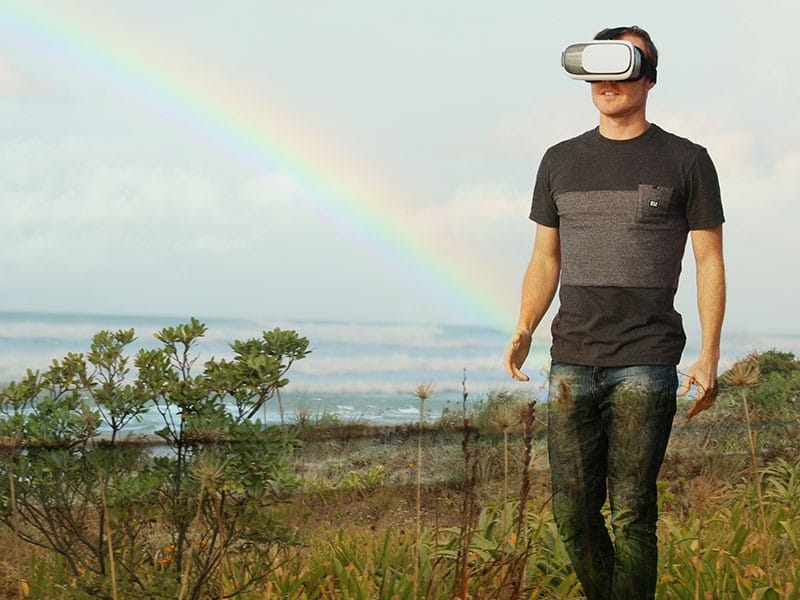Some people go together like peanut butter and jelly; peanut butter and chocolate; or peanut butter and a spoon, late at night, on the couch watching Mindhunters. Marriage is one symbolic way of showing your partner you care about them in sickness and in health, and it’s also a great tax write-off. Finding that special someone can be hard though. You’ve got to really “wow” your crush these days: text them only three times a day for six months, always before 8 P.M. and never on Sundays, and then maybe you can go grab a burger together sometime.
It might be hard to admit, but there is a definite need for connection that many of us struggle to attain. However, VR technology is finding ways to fill in those missing gaps through virtual interactions and exchanges.This means that some of the traditional aspects of our relationships are getting quite the digital upgrade.
I Do?
As experts at Maryville University explain, “Thanks largely to the unexpected success of the augmented reality game Pokémon Go in 2016 and the rising popularity of smartphone headsets, VR and AR are now the biggest up-and-comers in the tech world.” As VR technology becomes cheaper and more accessible to the common household, it’s also helping some marry their perfect match through VR wedding ceremonies (take that, Kim Davis!).
While the legality of VR marriages is yet to be established, they are officiated by a priest and sealed with a kiss, just like every other wedding you’ve been to — except the bride’s uncle won’t be drunk by noon, trying to offer unsolicited advice to the best man.
VR technology was designed with people in mind. It may be nontraditional, but unless VR spouses can figure out a way to hire a hit on their significant other in order to collect life insurance, they can help a lot of people with their needs for social and romantic connections.
A New Take On Tradition
Speaking of marriage, VR technology has found a place in weddings in other ways, and it’s on its way to annexing the cake-smashing photos that almost every couple has hanging in their foyer. With VR technology, couples can enjoy their spectacular event over and over again, cake smashing and all.
An example of this technological shift is, YouVisit, a company founded in 2010 by Abi Mandelbaum, Taher Baderkhan, and Endri Tolka. This particular VR Technology takes 360-degree content from any event, such as your wedding, and allows its users to revisit the moment, in almost its entirety, again and again. Of course, this VR technology isn’t just limited to weddings; any event that you want to relive again can be captured and saved. As such, VR technology is now creating essentially a time capsule for all our treasured moments.
A Better Connection for Lovers
Long-distance relationships are becoming more common and easier as a result of our digitally connected world. However, it should be noted that the lack of intimacy doesn’t get any easier, but VR technology can also help with that. Even if your partner is stuck thousands of miles away, the two of you can still find a close connection with your digital avatars.
With VR, you can hug, smooch, and dance the Macarena together in your digital forms, making the distance not totally unbearable. It’s also more intimate than simply messaging back and forth, considering your avatars move with you in real time. Thanks to VR technology you can hold hands while in two completely different hemispheres.
As VR technology widens interactions between humans and technology, many aspects of our relationships and how we interact within the digitally developed world are changing. Having a romantic relationships from two completely different times zones now seems doable, if not surreal.
VR Technology and the Future of Love
With human interaction at its center, VR technology is giving consumers new and diverse experiences. It’s exciting to imagine what this industry will look like in five years (although experts like at DeVry University already have a pretty good guess). Whether you’re ready for a VR relationship or not, the future of dating is certainly getting a technological makeover and it’ll be interesting to see how it continues to grow from here.

